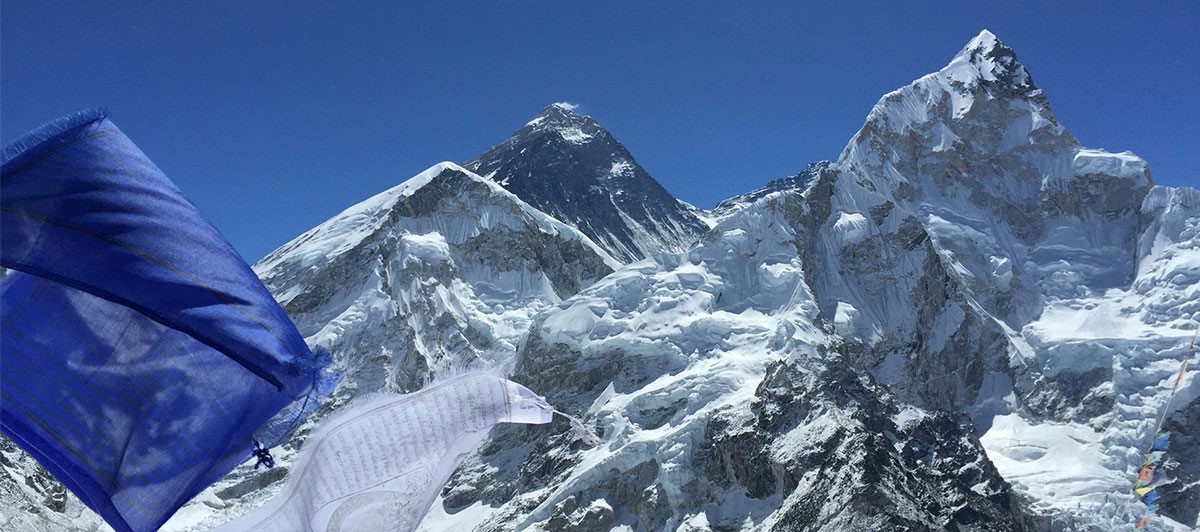Table of Contents
24th Mar, 2024 by: EBC Trek
The Ultimate Guide to the Everest Base Camp Trek: Your Adventure Begins Here
Embarking on the Everest Base Camp Trek is more than just a journey; it's a pilgrimage to the heart of the Himalayas, where the air is clearer, and the mountains touch the sky. As one of the most coveted treks globally, it offers adventurers an unparalleled view of the world's highest peak, Mount Everest, alongside a chance to immerse themselves in the rich Sherpa culture. This comprehensive guide aims to equip you with all the necessary information, ensuring your expedition is nothing short of spectacular.
What is the Everest Base Camp Trek?
The Everest Base Camp Trek is an iconic journey that takes you through the rugged trails of the Khumbu Valley, serene monasteries, rhododendron forests, and remote villages, leading up to the base camp of Mount Everest. It's not just a trek; it's a challenge to oneself, a spiritual journey, and a beautiful way to understand Nepalese culture.
Best Time to Trek
The trek can be undertaken during two main seasons. The pre-monsoon spring months of March to May offer clear skies, blooming flora, and moderate temperatures. The post-monsoon autumn season from September to November is equally popular, providing trekkers with crisp visibility and cooler weather. Each season brings its own unique flavor to the trek, making it a magnificent experience regardless of when you choose to go.
Preparing for the Trek
Preparation is key to enjoying and successfully completing the Everest Base Camp Trek. This includes physical training, such as cardiovascular exercises and strength training, to ensure your body can handle the rigorous demands of the trek. Additionally, acquiring the right gear, such as quality hiking boots, thermal layers, and a reliable sleeping bag, is crucial. Don't forget to secure travel insurance that covers high-altitude trekking.
The Route
The classic Everest Base Camp Trek route starts with a scenic flight from Kathmandu to Lukla. From there, trekkers make their way through Phakding, Namche Bazaar, Tengboche, Dingboche, Lobuche, and Gorakshep before finally reaching Everest Base Camp. The return route typically follows the same path, offering a second chance to savor the breathtaking landscapes.
Acclimatization
Proper acclimatization is vital to avoid altitude sickness. The trek is designed with acclimatization days in Namche Bazaar and Dingboche, allowing your body to adjust to the increasing elevations. Listen to your body, stay hydrated, and keep a slow, steady pace.
Unique Experiences Along the Way
- Namche Bazaar: Known as the gateway to the high Himalayas, this bustling market town offers magnificent views of the surrounding peaks and is an excellent place for acclimatization hikes.
- Tengboche Monastery: Visit this spiritual center of the Khumbu region, where you can participate in a Buddhist ceremony.
- Kala Patthar: Although not part of every itinerary, a hike to this viewpoint offers the best panoramic vistas of Everest and its neighboring peaks.
Environmental and Cultural Respect
Treading lightly and respecting the local culture and environment are paramount. Stick to the trails, dispose of waste properly, and embrace local customs with an open heart.
Conclusion
The Everest Base Camp Trek is an adventure of a lifetime, offering stunning scenery, physical challenges, and a deep cultural immersion. With proper preparation and respect for the mountains and their inhabitants, you're set for an unforgettable journey. Remember, it's not just about reaching the base camp; it's about the journey, the people you meet along the way, and the memories you create.
FAQ
Q: Do I need a guide for the Everest Base Camp Trek? A: While it's possible to trek independently, hiring a guide or porter can enhance your experience by providing valuable insights into the local culture, ensuring your safety, and helping with logistical arrangements.
Q: How difficult is the trek? A: The Everest Base Camp Trek is considered moderately difficult. It doesn't require technical climbing skills, but trekkers should be in good physical condition to handle the daily distances and altitude.
Q: What is the total distance of the Everest Base Camp Trek? A: The round trip distance is approximately 130 kilometers (80 miles), with trekkers covering 10 to 15 kilometers (6 to 9 miles) per day.

